Kingdom of the North Heath
Spread from the jagged coast of Norshore and Bret Harth all the way across The Plains of Eauxe to Poiretre, the Kingdom of the North Heath covers a broad spread of land and an even broader variety of people. The coastal sailors and fisherman along the Crescent Sea have a very different culture than the farmers along the Meander River who are equally different from the tribal plainsmen of The Plains of Eauxe. Now independent of the rule of Foere as well as the powerful influence of Reme, the Kingdom of North Heath remembers warfare all too well and maintains a vigilant watch over nearby nations and free states.
History and People
History tells us that kingdoms and nations rise and fall, with new nations formed from the remnants of older ones. The Kingdom of the North Heath is no exception. Most of the kingdom’s territory includes broad tracts of land with poor rocky soil growing little more than moss and tough grasses fit for only sheep and goats to eat. Only along the Meander River can good farmland be found. The mouth of that river, the current location of the city of Bret Harth, has long been settled, with its access to fresh water, mines along the coast, as well as good, arable land for crops. No records remain of those first settlers, and some of the foundations and ruins in and near the city predate even the Hyperborean Imperium. Whatever the origin of Bret Harth may have been, the modern Kingdom of the North Heath first came to be when the sailor and privateer Captain Ayre Barbossa conquered the city to provide a base for his operations. At that time, the city and surrounding areas were in dire need of leadership, and the captain easily stepped in to take over and proclaim himself king.
Several generations later, the small kingdom began to expand down the Meander River and toward The Plains where it met powerful resistance by the Horsemen of Eauxe. The true birth of North Heath occurred when King Drake Barbossa took the unusual step of challenging the chieftains of The Plains tribes to individual combat. He successfully defeated the champions of all the tribes individually over the course of almost a year. His courage and prowess in battle earned him the fealty of the fierce warriors. While most of the “civilized” citizens no longer recall this event nearly 1,000 years gone, the tribesmen still tell the tale of Drake, and the dreaded Horsemen of The Plains of Eauxe remain loyal to the throne of the Kingdom of the North Heath. The royal family still sends all of their children to spend a minimum of three years living among the Horsemen as a sign of their loyalty to the tribes.
Recognizing the growing power of the fledgling kingdom, the ascendant Kingdom of Foere decided to add even these poor lands to its principalities. The fierce horsemen fell to Macobert’s advanced tactics and weapons in 2729 I.R., and North Heath was defeated. The former king of the North Heath was forced to bend the knee to Macobert and receive his new title of margrave of Bret Harth. Over the ensuing centuries, the Foerdewaith settled portions of The Plains of Eauxe, going so far as to grant title to the lands to a marquis of Eauxe, much to the anger of The Plainsmen.
When the Singed Man rose in Kear (now the Kingdom of Vast) in 2970 I.R., his predations and destruction reached far into the territories now claimed by North Heath. Laws against necromancy and the undead here reflect the fear still raised from that dark time in history.
After the disappearance of the Army of Light in 3210 I.R., Foere began its slow disintegration in the Foerdewaith Wars of Succession. One year after Duke Oden of Kear declared his domain’s independence as the Kingdom of Vast in 3224 I.R., the margrave of Bret Harth did the same, having himself crowned the newly restored king of the North Heath. This began a lengthy war with Foere that eventually ended in 3245 I.R. when an armistice was signed in conjunction with Vast, negotiated with the help of the City-State of Castorhage. It was agreed that The Plains of Eauxe would be abandoned by the villagers and townsmen who had settled the region and be restored to the free run of the Horsemen of Eauxe. Only Poiretre would be left as a place of meeting for the tribal councils and for administration by North Heath. Otherwise, the lands would become a largely depopulated buffer between Bret Harth and Courghais.
Religion
Muir, Goddess of Virtue, and Thyr, God of Law and Justice, are the major gods worshipped in the lands of the Kingdom of North Heath. Worship of Mitra is growing lately at the expense of Muir. Other minor gods are also worshipped in some locations but the major temples in cities such as Bret Harth and Broten are to these gods. The Horsemen of The Plains of Eauxe worship far differently; they provide no name for their gods but claim to worship the land, sun, and sky. Sages argue that some god must answer their prayers as clerics among the horsemen are as powerful as those of any of the named gods.
Trade and Commerce
Regular flooding along the Meander River helps keep the nearby farmlands fertile and productive and grow various grains, corn, and cotton and support herds of sheep and goats. The broader plains are home to cattle, buffalo, and wild horses tended by the tribal horsemen. The heath itself stretches from Bret Harth across to Broten and down toward The Plains of Eauxe. Sheep and goats raised on the heath provide wool, milk, and meat but the majority of crops and food come from the areas close to the Meander River. The coastal regions are supported principally by fishing, though Bret Harth and Broten focus on fishing and trade. Several isolated mines along Norshore and the area near Bret Harth provide some gold and iron, although not enough to support the full needs of the kingdom. Bret Harth and Poiretre boast large numbers of extremely skilled craftsmen that take imported raw materials and turn them into manufactured products recognized far and wide for quality, including furniture, clothing, cookware, weapons, and other items. As a result, the many trade agreements the kingdom has made are the lifeblood of its cities, and the king does everything possible to maintain them.
Loyalties and Diplomacy
Trade agreements and treaties with the Kingdom of Vast, the Grand Duchy of Reme, the Iron Kingdom of Dorriden, and the City-State of Castorhage and the armistice agreement with the Kingdom of Foere have long ensured North Heath’s safety and economic well-being, though some of the aspects of those treaties cause King Lytyr and his advisors some concern. Although their vigilance is not entirely unwarranted, in spite of its size, the Kingdom of North Heath is a relatively poor nation populated by fierce and hardy people, particularly among the Horsemen of Eauxe, which makes it a poor target for conquest.
Kingdom of Vast to the south is an ally and steady trade partner, as is the City-State of Castorhage. The Kingdom of Vast provides a buffer against the Principality of Olduvar for North Heath, while North Heath provides the same role against Foere and Reme for the Kingdom of Vast. The City-State of Castorhage, at this time, is happy to keep these smaller kingdoms independent restraining Reme and Foere so that it can focus on some of its own internal problems. Relations with Reme also remain on reasonably friendly terms.
Presently there is an uncomfortable peace with the Tycho Free States after a rogue North Heath admiral seeking fame and a route to power began an unsanctioned naval assault in 3511 I.R. Poorly planned and carried out without knowledge or support of the navy as a whole, the young admiral and his forces were defeated. In addition to the loss of several major ships in the embarrassing defeat, the Kingdom of the North Heath was left in an unfavorable position regarding trade and diplomacy while trying to rebuild and strengthen its navy, a necessity to protect its trade in the often-dangerous waters of the Crescent Sea.
Government
The Kingdom of the North Heath is a hereditary monarchy presently ruled by King Lytyr Reddrake. The Reddrake family came to power in 3403 I.R. when King Aylyr Reddrake (Barbossa), who had taken the family name of his Eauxe wife, succeeded to the throne after his cousin, the king, and his family were lost at sea. While over the centuries the royal succession of North Heath has been plagued with difficulties from time to time, King Lytyr took the throne without dissension. He maintains a strong set of advisors who represent the interests of all major craft and trade groups as well as the nobility. He also maintains a close connection to the horsemen. As a general rule, King Lytyr has been able to keep the nobility happy, the crafting and merchant guilds satisfied, and makes clear his support of the farmers, ranchers, and horsemen of his kingdom. He is known to venture throughout the kingdom to visit farms along the Meander River or goat herders on the heath simply to ensure that things are going well for his people. King Lytyr has two brothers, Joural, who is older and abdicated his position as heir in order to serve as a cleric of Muir, and Brance, who serves in the kingdom’s navy. Lytessa, a much younger sister, resides among the riders where she now intends to stay. The king’s main residence is in Bret Harth but he spends one month per year in Poiretre and several weeks in Broten as well as additional time with the horsemen.
A court system is in place with a high court that adjudicates crimes of the nobility as well as civil disagreements between merchants and families, and a low court that handles all other crimes. Officially, laws are applied to the nobility and low born equally, though in practice the wealthy and powerful rarely see trial. The horsemen of The Plains of Eauxe have their own tribal laws and justice. Horsemen guilty of minor crimes against other citizens are turned over to their tribe; only in the event of murder or rape of another citizen do horsemen go to a regular court, and in such cases, it is always the high court where they are treated as nobility. Anyone questioning the outcome of a trial can appeal to the king. King Lytyr has never overturned a court ruling, though some kings in the past have favored nobles or friends.
The cities and communities of the heath and along the Meander River have elected mayors and city councils who are sworn to serve the crown and the people. The king remains focused on the kingdom as a whole, particularly in maintaining its navy, and leaves the day-to-day operations of Bret Harth to the city council and mayor.
Military
The military consists of three parts: the Navy, which commands all the ships of war and the ports at Bret Harth and Broten; the General Militia, including all regular troops and traditional cavalry of the kingdom; and the Horsemen of Eauxe, who form their own specialized horseback units. Marines trained in sea and land combat are part of the navy and serve on ships and in some of the harbors. In defense of the kingdom, the Horsemen of Eauxe are led by a horseman who has received additional training and education in modern tactics as well as ways to better incorporate their strengths with that of the general militia and cavalry. Since the time of the Singed Man, North Heath has maintained a strong and steady training regimen for its regular troops and its officers. All officers must pass stringent physical tests before assuming their first command.
The military is led as a whole by a council chaired by the king that consists of two senior admirals, a general from the army, a general from the cavalry, and the senior horsemen in charge of the Horsemen of Eauxe. The council decides where troops and ships are to be stationed as well as the movement and rotation of troops during peacetime, and, of course, oversees mobilization of the military as a whole in the event of an attack.
Major Threats
Coastal threats include all of the dangers of the Crescent Sea, including piracy, storms, and certain beasts from the depths. While some military leaders fear attack from Foere or Reme, both of these nations have their own concerns. Reme, in particular, has little interest in seizing lands with so little to likely gain. Near the coast and in the area of the Blackrock Mountains, dragons sometimes attack civilized areas or ships. Strange forms of undead, likely somehow left behind during numerous battles throughout parts of the kingdom, are found in some areas, though they are usually quickly eliminated.
Region
Kingdom of the North Heath
Subsidiary Organizations
Controlled Territories

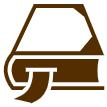
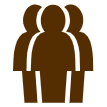
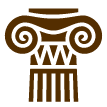
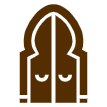

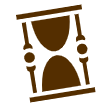
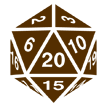



Comments